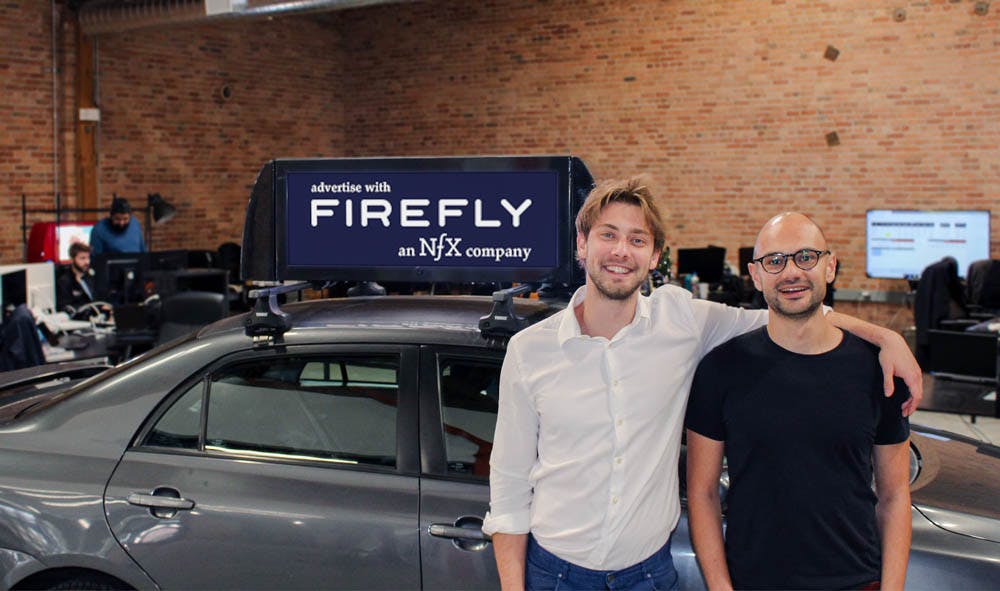Though it began as an idea between two friends in their college dorm room, a startup called Firefly has grown into a community-centered company that aims to supplement the income of ride-share drivers around the country and reduce the costs of transportation by allowing drivers to make money by displaying digital ads on their cars. Kaan Gunay ’13, Firefly’s chief executive officer, spoke with The Herald about his company and how his experiences at the University shaped him into the person he is today.
Herald: Can you introduce yourself and talk about how you came to Brown?
Gunay: I am originally Turkish, and I lived in Turkey until I was 18. At 18, I moved to the States for college, and I came to Brown, where I studied mechanical engineering. I graduated from Brown in 2013, and I had a phenomenal experience. I look on my days at Brown very fondly. After Brown, I went and worked at a hedge fund in Boston and New York for a couple years, then got my (Master of Business Administration) at Stanford, where I started Firefly.
Is there a particular reason you chose Brown, and can you talk about your Brown experience?
Interestingly enough, one of the main reasons I chose Brown was (that) I was looking at those college ratings. … I remember seeing rankings for happiest students, and Brown was number one. Brown was the only college I applied to, and I don’t regret it. Obviously, it has a great reputation but, aside from that, the fact that everyone seems to be happy made it stand out to me.
I wasn’t exposed to entrepreneurship as much as I would have liked to be at Brown, so if there was any feedback that I would give towards the school curriculum I would say more entrepreneurship-heavy classes that are actually entrepreneurial, I think would be helpful. … I do wish I had been exposed to something like that earlier. Other than that, I had a phenomenal time.
Can you describe how Firefly evolved from an idea into a company?
We conceived Firefly at Stanford with one of my closest friends in the world (cofounder Onur Kardesler). He was actually not a student at the time; he was working at another company based in Palo Alto. So we worked on brainstorming ideas every day after my classes, and when we landed on the idea of Firefly, he immediately quit his job and moved into my dorm room.
We started pitching investors, and being at Stanford is amazing because you get exposed to lots of venture capital investors, which you don’t necessarily get at Brown.
Initially we had a lot of rejection because we didn’t have a prototype, and so we ended up investing a little bit of our own money to build our initial prototype. Once we had it, we spoke to a bunch of ride-share drivers, … and we finally landed on a driver who was willing to put one of our initial prototypes on their car. We ended up partnering with them and collecting statistics. We started working with a venture capital firm NFX, and (NFX and other venture capital firms have invested) a total of $21.5 million. That’s where we are today.
Was there a reason you decided to focus on ride-share drivers?
First of all, I have always been interested in transportation. And I firmly believe that in the near future, transportation … will be subsidized by companies. I see transportation as a basic human right. This whole new economy has been created around it, and seeing the drivers’ income was (a great area of focus to pursue).
I deeply care about the driver demographic, which I believe is mainly constituted of disadvantaged minorities. The income streams going to drivers are decreasing because these ride hailing companies are taking more and more money as they prepare initial public offerings. I believe that there is a real need to actually help these people, and the fact that we could one day subsidize transportation costs for everyone I believe is incredible, too.
Do you have a specific goal in mind for the future?
We’re launching in new markets. We’re launching soon in New York, and we will be launching in multiple other markets as well. In the future, our goal is to subsidize enough of the drivers’ income so that transportation can be made free … for people who want to go from point A to point B.
How do you balance entrepreneurship and philanthropic pursuits?
I don’t think there needs to be balance, to be honest. If you are an entrepreneur who is focused on creating a company that has a good cause, then I think you can create a profitable venture around it that can scale quickly and help a lot of people at the same time. It’s all about mentality and making sure you pick the right industry.
How can for-profit entrepreneurs contribute to civic life?
I think it’s all about making sure that you are putting civic life first. Everything that we do here is for our driving partners. I think as long as you do a phenomenal job, people will want your product more.
Do you have any advice for like-minded students who want to pursue similar ventures?
I firmly believe the three years in which I was working in finance were a very inefficient use of my time, and I wish I could get that back. I think internships are perfect ways in which you can be exposed to entrepreneurship and to do things that you wouldn’t have a chance to do otherwise.
Is there anything you’d like to add and get out there?
I firmly believe that especially Brown students must have done something phenomenal throughout the past to get accepted to such a special college. Everyone should look into their own hearts and really figure out what they want to do and pursue that relentlessly.
This article was edited for length and clarity.





